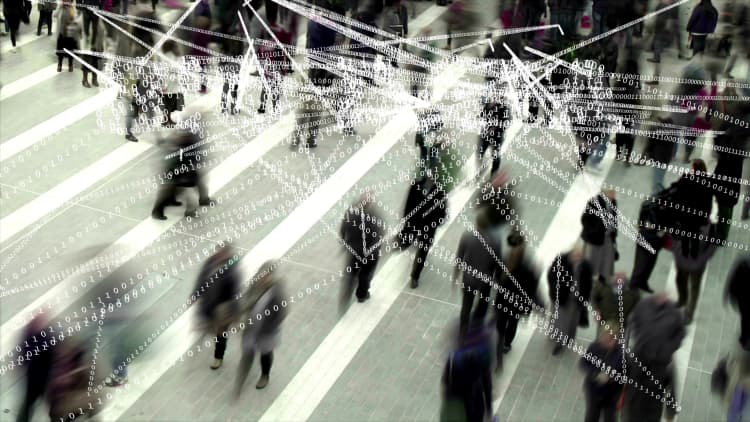Apple and Google released a beta version of their coronavirus tracing software on Wednesday.
This software will power apps that do "digital contact tracing" or, as Apple and Google call it, "exposure notification." These apps will provide notifications to users that they may have been exposed to someone infected with the Covid-19 coronavirus, without collecting or sharing data about their identities.
Apple and Google are not building the apps. Rather, they're building technology into their market-leading smartphone operating systems, iOS and Android, to enable apps to use Bluetooth signals to determine their distance from other phones. If a person tests positive with Covid-19, they can use the apps to send notifications to other phones that have come within a certain distance, telling the owners of those phones to get tested.
Millions of people around the world are expected to download these apps to fight the spread of the coronavirus over the coming months.
Apple and Google's application programming interfaces, or APIs, are included in the beta version of Xcode 11.5, a program which is used to develop apps for Apple computers. In addition, a beta version of Apple's smartphone operating system, iOS 13.5, which was released on Tuesday for software developers, includes the code needed for those phones to run apps using the Apple-Google APIs.
For Android phones, a new beta update to Google Play Services and Android Developer Studio will also support apps using the Google-Apple system.
Apple and Google will release sample code on Friday to help developers working with public health authorities to build the final apps, company representatives said. The official release is expected in May.
In the Google-Apple system, tracing the coronavirus is done through scrambled codes that are stored on a user's physical phone, as opposed to a system that uses a centralized server that collects and matches IDs. The companies and privacy advocates favor this approach to prevent the possibility that coronavirus-tracing apps could form the cornerstone of new surveillance systems.
Now it's up to governments around the world to decide whether they'll choose the Apple and Google approach or create their own apps using their own technology to empower their public health departments with additional data. But apps that don't use the Apple-Google technology could run into limitations, including restrictions on Apple iPhones that prevent Bluetooth apps from running in the background, meaning that users would have to keep them on their phone screens at all times for the contact tracing to work.
Germany over the weekend said that its national app would use the Apple and Google protocol. The U.K.'s National Health Service said that its app would be ready for a trial in three weeks, and it does not use the Apple-Google approach. Australia also has eschewed the Apple-Google APIs for an app based on Singapore's app, COVIDsafe. Australian Prime Minister Scott Morrison tweeted on Monday that COVIDsafe has already garnered 2 million downloads.
The two tech giants first announced that they teamed up in March to build APIs directly into iOS and Android to slow the spread of coronavirus. The contact tracing partnership between Apple and Google was driven by a few employees at first and has developed at a speed highly unusual for Apple, CNBC previously reported.



